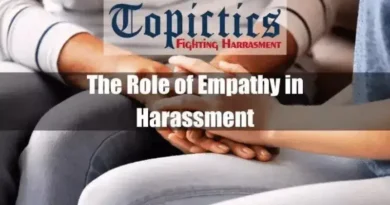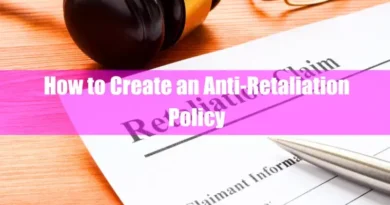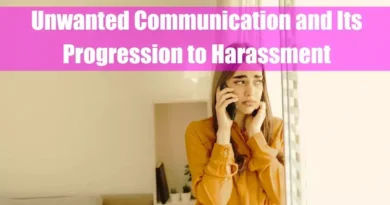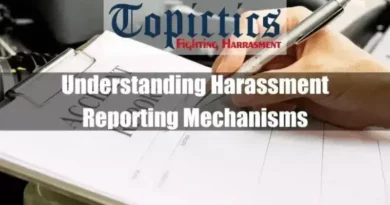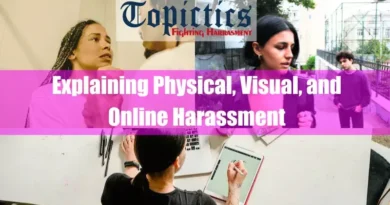Explaining Unwelcome Sexual Advances
Unwelcome sexual advances are a pervasive issue that affects individuals across various sectors and cultures. These advances, often subtle yet damaging, manifest in different forms, leaving lasting psychological and emotional scars on victims.
Understanding what constitutes an unwelcome sexual advance is crucial for fostering respectful and safe environments, whether in workplaces, educational institutions, or social settings.
Takeaways
| Key Points |
|---|
| Unwelcome sexual advances refer to unwanted or unsolicited sexual behavior that makes the recipient feel uncomfortable, distressed, or threatened, including physical actions, verbal comments, or non-verbal gestures. |
| Legally defined by the U.S. EEOC as unwelcome advances, requests for sexual favors, or other sexual conduct, such behaviors may result in quid pro quo harassment—where job benefits are contingent upon compliance—or create a hostile work environment. |
| Common misconceptions include the belief that only physical acts count or that explicit rejection is required, whereas verbal and non-verbal cues, such as suggestive comments or prolonged stares, also qualify. |
| Recognizing unwelcome advances involves identifying behavioral and verbal indicators across contexts such as workplaces, educational institutions, social settings, and online spaces, where anonymity can exacerbate the issue. |
| Legal protections like Title VII and Title IX prohibit such harassment in employment and educational environments, while ethical considerations and cultural influences play critical roles in shaping perceptions and responses to these behaviors globally. |
Defining Unwelcome Sexual Advances
Key Definitions and Legal Standards
Unwelcome sexual advances encompass any unwanted or unsolicited sexual behavior that makes the recipient uncomfortable, distressed, or threatened. This can include physical actions, verbal comments, or non-verbal gestures that are sexual in nature.
Legally, these behaviors are categorized under sexual harassment, defined by the U.S. Equal Employment Opportunity Commission (EEOC) as “unwelcome sexual advances, requests for sexual favors, and other verbal or physical conduct of a sexual nature.”
The recipient’s discomfort or objection is distinguishing these actions as unwelcome. In legal terms, unwelcome sexual advances can lead to two primary types of sexual harassment: quid pro quo harassment, where submission to such behavior is tied to employment decisions, and hostile work environment harassment, where the conduct creates an intimidating or offensive atmosphere.
The legal landscape surrounding these behaviors has evolved to provide better protection to victims, with laws like Title VII of the Civil Rights Act of 1964 in the United States setting the groundwork for legal recourse.

Common Misconceptions
Several misconceptions persist about what constitutes an unwelcome sexual advance. Some believe behavior must be overtly aggressive or explicit to be deemed harassment. However, subtler actions, such as suggestive comments, lingering stares, or inappropriate jokes, can also qualify as unwelcome if they create a hostile environment.
Another common misunderstanding is that only physical acts count as unwelcome advances. In reality, verbal and non-verbal cues can be just as harmful and are equally recognized under the law.
Moreover, some assume that if a person does not explicitly reject the advance, it may be considered welcome. However, many victims may not voice their discomfort due to fear of retaliation, societal pressure, or uncertainty about whether their feelings are valid.
This highlights the importance of understanding the nuances of consent and the power dynamics that often influence these interactions.
Differences Between Welcome and Unwelcome Behavior
The distinction between welcome and unwelcome behavior hinges on consent and mutual understanding. Welcome behavior involves mutually agreed upon and desired actions by both parties. In contrast, unwelcome behavior lacks consent, often leaving the recipient feeling violated or uncomfortable.
Understanding this difference requires a keen awareness of context and communication. For instance, a compliment on appearance might be welcome in a casual, consensual setting but unwelcome in a professional environment where it may feel intrusive or inappropriate.
Recognizing that the same action can be perceived differently depending on the context and the individuals involved is essential.
Recognizing Unwelcome Sexual Advances

Behavioral and Verbal Indicators
Recognizing unwelcome sexual advances involves identifying specific behavioral and verbal cues. Common indicators include unsolicited physical contact, such as touching, hugging, or kissing without consent. Verbal indicators may include suggestive comments, sexual jokes, or inappropriate questions about someone’s personal or sexual life.
Non-verbal cues, such as prolonged staring, making suggestive gestures, or sending sexually explicit materials, also constitute unwelcome advances. It’s important to note that these behaviors often start subtly and can escalate over time if not addressed. Victims may initially dismiss these actions as harmless or unintentional, which can complicate recognizing the seriousness of the situation.
Contexts in Which They Occur
Unwelcome sexual advances can occur in various contexts, including the workplace, educational settings, social gatherings, and online interactions. In the workplace, these advances may come from colleagues, superiors, or even clients, making navigating a particularly complex environment.
Educational institutions are also hotspots for such behavior, with power dynamics between students, teachers, and administrative staff playing a significant role.
Social settings, where boundaries are often blurred, can also give rise to unwelcome advances, especially in environments where alcohol or social pressures are present.
Online platforms have become increasingly common venues for such behavior, with the anonymity and distance provided by digital communication often emboldening perpetrators.
Examples and Scenarios
To better understand what constitutes an unwelcome sexual advance, consider the following scenarios:
- Workplace Scenario: An employee repeatedly receives suggestive emails from a colleague despite not responding or expressing discomfort. The colleague’s persistence creates a hostile work environment, affecting the employee’s ability to perform their job.
- Social Setting: At a party, an individual continues to advance toward someone who has clearly stated they are uninterested. The advances escalate to physical contact, making the situation uncomfortable and unsafe for the victim.
- Educational Environment: A student repeatedly receives unsolicited comments about their appearance from a professor, which makes them uncomfortable and affects their ability to engage in class.
These examples illustrate the varied forms and contexts in which unwelcome sexual advances can occur, highlighting the importance of awareness and vigilance in recognizing and addressing such behavior.
Legal and Ethical Implications
Overview of Relevant Laws and Regulations
Legal frameworks around unwelcome sexual advances have been established to protect individuals from harassment in various settings, primarily the workplace and educational institutions.
The cornerstone of these protections in the United States is Title VII of the Civil Rights Act of 1964, which prohibits employment discrimination based on sex, among other categories. The law recognizes sexual harassment, including unwelcome sexual advances, as a form of sex discrimination.
Further, the U.S. Equal Employment Opportunity Commission (EEOC) outlines clear guidelines on what constitutes sexual harassment, including unwelcome advances, requests for sexual favors, and other verbal or physical conduct of a sexual nature.
These legal standards have been refined through case law, with courts interpreting and applying these guidelines in various scenarios.
In educational settings, Title IX of the Education Amendments of 1972 plays a similar role, prohibiting sex-based discrimination in any education program or activity receiving federal financial assistance.
This law has been pivotal in addressing unwelcome sexual advances in schools and universities, where power imbalances between faculty and students often lead to such misconduct.

Ethical Considerations in Different Contexts
Beyond the legal framework, ethical considerations play a crucial role in understanding and addressing unwelcome sexual advances. Ethical standards require that individuals respect others’ boundaries, consent, and dignity, regardless of the setting. This is particularly important in professional environments where power dynamics can complicate interactions.
For instance, a senior executive making advances toward a junior employee violates professional boundaries and exploits their position of power, making it difficult for the junior employee to reject the advances without fear of repercussions. Similarly, teachers and professors have an ethical duty in educational settings to maintain professional boundaries with students, ensuring that their authority is not misused.
Cultural and Societal Influences
Role of Social Norms and Gender Dynamics
Social norms and gender roles significantly influence how unwelcome sexual advances are perceived and addressed. In many cultures, traditional gender roles encourage men to be assertive, which can sometimes turn into harassment. On the other hand, women are often expected to be accommodating, making it difficult to reject advances or express discomfort.
These norms perpetuate behaviors that should be recognized as inappropriate.

How Cultural Attitudes Shape Perceptions
Cultural attitudes towards sexuality impact what is considered an unwelcome sexual advance. In conservative cultures, even mild flirtation might be seen as inappropriate, while more liberal environments may tolerate suggestive behavior.
These differences can lead to misunderstandings, especially in multicultural settings where diverse perspectives on acceptable behavior intersect.
Global Perspectives on Unwelcome Advances
Globally, the approach to unwelcome sexual advances varies. Some countries, like Sweden and Norway, have implemented strong laws and public education campaigns to reduce such behavior. In contrast, regions with traditional norms or legal restrictions on discussing sexual matters face challenges in addressing the issue effectively.
Understanding these global perspectives helps identify successful strategies and recognize the obstacles different cultures and legal systems face.
Strategies for Addressing Unwelcome Sexual Advances
Individual Responses and Coping Mechanisms
It is important for individuals experiencing unwelcome sexual advances to know how to respond effectively. Immediate responses may include clearly communicating discomfort, setting boundaries, and documenting the behavior. If the advances persist, seeking support from trusted colleagues, friends, or professional counselors can provide emotional support and guidance.
Longer-term coping mechanisms might involve participating in assertiveness training, joining support groups, or engaging in therapy to address any psychological impact. Victims must also be aware of their rights and the legal options available to them if they choose to take action against the perpetrator.
Organizational Policies and Procedures
Organizations play a critical role in preventing and addressing unwelcome sexual advances. Establishing clear policies that define unacceptable behavior, provide reporting mechanisms, and outline consequences for violations is fundamental. Regular training sessions on sexual harassment, consent, and respectful behavior are vital in creating a safe environment.
Furthermore, organizations should ensure that their procedures for reporting and handling complaints are accessible, confidential, and impartial. This encourages victims to come forward without fear of retaliation or judgment, fostering a culture of accountability and respect.
Legal Recourse and Reporting Mechanisms
Legal recourse is available for individuals who experience unwelcome sexual advances, with various reporting mechanisms depending on the context.
Employees can file complaints with their HR department or directly with agencies like the EEOC. In educational settings, Title IX coordinators handle complaints related to sexual harassment and misconduct.
Victims need to document all instances of harassment and seek legal advice if necessary. Understanding the legal process and the protections available can empower victims to take action and seek justice.

Importance of Awareness and Training
Awareness and training are key components in preventing unwelcome sexual advances. Education on the importance of consent, the impact of harassment, and how to recognize and address unwelcome behavior should be integrated into school curricula, workplace training programs, and public awareness campaigns.
Training programs should be inclusive and tailored to different audiences, ensuring everyone understands their role in creating safe and respectful environments.
Regular updates and refresher courses can help maintain awareness and adapt to changing social norms and legal standards.
Effective Communication and Consent Education
Teaching effective communication skills and the principles of consent is essential for preventing unwelcome sexual advances. Consent education should emphasize that consent must be clear, voluntary, and ongoing, with all parties involved understanding and agreeing to the nature of the interaction.
By promoting a culture of open communication and mutual respect, we can reduce instances of misunderstanding and ensure that all interactions are based on mutual agreement and respect.
Role of Education Systems and Organizations
Education systems and organizations are responsible for creating environments that promote respect and prevent harassment. Schools and universities should incorporate comprehensive sex education that includes discussions on consent, healthy relationships, and the impact of sexual harassment.
On the other hand, organizations should lead by example, implementing and enforcing policies that protect employees and create a culture of respect.
Educational institutions and workplaces can contribute to broader societal change by prioritizing these efforts.
Conclusion
In conclusion, unwelcome sexual advances are a serious issue that requires a comprehensive and informed approach to address. By understanding the definitions, recognizing the signs, and being aware of the legal and ethical implications, individuals and organizations can take proactive steps to prevent and respond to such behavior.
These efforts must also consider Cultural and societal influences, ensuring that strategies are inclusive and effective across diverse contexts.
Addressing unwelcome sexual advances is not just a legal obligation but a moral imperative. It is crucial for creating environments where everyone feels safe, respected, and valued. Through education, awareness, and strong policies, we can work towards a society where unwelcome sexual advances are no longer tolerated.
FAQ
What constitutes “Unwelcome Sexual Advances” in a professional setting?
Unwelcome sexual advances in a professional setting refer to any unwanted behavior or communication of a sexual nature that creates a hostile or intimidating work environment. These actions can include verbal remarks, non-verbal cues, or unsolicited physical gestures that disrupt the individual’s sense of safety and dignity.
How is “Quid Pro Quo Harassment” defined in relation to unwelcome sexual advances?
Quid pro quo harassment involves a power imbalance where job benefits or opportunities are directly linked to the acceptance or rejection of sexual advances. This form of harassment pressures individuals into unwanted sexual behavior by making it clear that compliance is tied to positive employment outcomes.
What is meant by “Hostile Work Environment Harassment” when referring to unwelcome sexual advances?
Hostile work environment harassment occurs when persistent or severe unwelcome sexual advances create an atmosphere of fear, disrespect, or discomfort, affecting an individual’s work performance. This term encompasses behaviors that may not involve direct quid pro quo exchange but still significantly impair the victim’s ability to feel safe and valued at work.
How does “Sexual Coercion” manifest as unwelcome sexual advances?
Sexual coercion manifests through pressure or manipulation, where an individual is forced or subtly intimidated into engaging in sexual activity against their will. This coercion undermines the autonomy of the victim by linking compliance with benefits or by threatening adverse outcomes if the advances are resisted.
What does the term “Unsolicited Sexual Overtures” imply in unwelcome sexual advances?
Unsolicited sexual overtures refer to sexual comments, gestures, or behaviors initiated without invitation and clearly rejected by the recipient. These overtures contribute to a pattern of unwelcome behavior that can gradually erode the individual’s sense of respect and personal boundaries.
What constitutes “Digital Sexual Harassment” as a form of unwelcome sexual advances?
Digital sexual harassment involves the use of electronic communications—such as emails, texts, or social media messages—to send unwelcome sexual content or propositions. This modern form of harassment invades personal digital spaces and creates a persistent online environment of discomfort and disrespect.
How is “Sexual Misconduct” differentiated from consensual behavior in the context of unwelcome sexual advances?
Sexual misconduct is characterized by behavior that crosses the boundaries of consensual interaction, often involving unwanted or inappropriate advances that violate accepted social or professional norms. It is distinguished from consensual behavior by its non-consensual nature and the power imbalances that typically underpin the misconduct.
What is the definition of “Inappropriate Touching” under unwelcome sexual advances?
Inappropriate touching is a specific form of physical misconduct that involves unwanted contact with another person, particularly in intimate or sensitive areas. This behavior is considered a serious violation of personal space and consent, often leaving the victim feeling unsafe and disrespected.
How does “Verbal Sexual Harassment” relate to unwelcome sexual advances?
Verbal sexual harassment includes the use of language—such as comments, jokes, or propositions—that are sexually explicit or suggestive and are unwanted by the recipient. Even in the absence of physical contact, these verbal advances can create a degrading and hostile environment, significantly impacting the victim’s psychological well-being.
What is meant by “Non-verbal Sexual Harassment” in instances of unwelcome sexual advances?
Non-verbal sexual harassment refers to unwelcome actions communicated through body language, facial expressions, or visual displays, such as leering or showing explicit images without consent. These behaviors can be just as invasive as verbal or physical harassment, often leaving the target feeling objectified and uncomfortable.
What does “Sexual Solicitation” refer to in the context of unwelcome sexual advances?
Sexual solicitation involves actively seeking or requesting sexual favors from another person without an invitation, often in a manner that is coercive or inappropriate. This practice not only infringes upon personal boundaries but also can lead to an environment where power dynamics are exploited, compromising the victim’s autonomy.
How is “Sexual Extortion” defined as a technical term associated with unwelcome sexual advances?
Sexual extortion is a form of harassment where an individual uses threats, manipulation, or abuse of power to force someone into unwanted sexual activities. This egregious behavior intertwines personal safety or career prospects with sexual demands, creating a severe violation of personal and professional boundaries.
What constitutes “Groping” as a specific form of unwelcome sexual advances?
Groping is an unwanted and non-consensual physical contact that involves deliberately touching someone in a sexual manner. This behavior is recognized as a direct invasion of personal space and bodily autonomy, often leaving a profound emotional and psychological impact on the victim.
What does the term “Sexual Intimidation” entail in the spectrum of unwelcome sexual advances?
Sexual intimidation involves using threatening behavior, gestures, or words to instill fear and compel compliance with unwanted sexual advances. This tactic leverages power to undermine the victim’s confidence and create an environment where they feel unsafe and coerced into acquiescence.
How is “Unwanted Sexual Contact” technically defined in cases of unwelcome sexual advances?
Unwanted sexual contact is any physical interaction of a sexual nature that occurs without the explicit consent of all parties involved. This definition underscores the importance of mutual agreement, emphasizing that any contact made without clear permission constitutes a violation of personal rights and boundaries.




